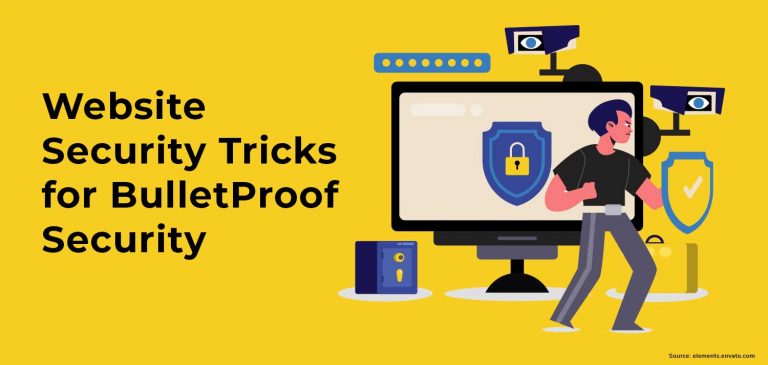Your website is at risk for a cyberattack. Yes, you read that correctly. So, if you’re a small business owner and you have a website then you may be vulnerable to a hacker’s attention. We know what you might be thinking, my website is too small to draw the attention of a cybercriminal. However, you couldn’t be more wrong. More than 50,000 websites are attacked daily according this webarx security article. What’s more troubling is that 43% of those attacks happen to small businesses, yikes! So, as a responsible business owner, you need to protect your website with the utmost in bulletproof security.
Don’t know where to start? No worries, we’ve got you covered. Here are 5 simple steps to keep your website secure and your client’s information safe. Let’s get into it.
Table of Contents
1. You need the right hosting solution
As a small business owner, you may not want to break the bank when it comes to hosting solutions for your website. However, you do want a hosting package that packs a powerful punch with built-in security.
Most small business owners start their websites with a shared hosting solution. While this may be economically effective, this can leave your website susceptible to an attack. A shared hosting solution means that your website is hosted on a server shared with other websites.
For example, if one of those websites experience a breach it could cause the entire server to be infected and thus impact your website. That’s why you need a hosting solution that comes with built-in security. This is where VPS hosting comes in.
Unlike shared hosting, VPS is a virtual private server. In this set up, all the server’s resources are allocated to your website alone. And while it is on a dedicated server shared by other sites; no other websites will share your server resource and your website is safer. This is because VPS sites benefit from complete isolation on a given server. This built-in security is also perfect for keeping your website safe.
With VPS hosting you can opt for a managed VPS account and have your server maintained by your hosting provider.
2. You need HTTPS Protocol enabled
Now that you have a VPS server, you also need the HTTPS protocol that is enabled by using SSL (secure sockets layer) or TLS certificates. These certificates ensure an end-to-end encryption between your website server and the end user’s browser. This stops anyone from intercepting the data exchanges between your server to the end user’s computer.
SSL certificates also clue your audience and clients that your website is secure. In fact, it is imperative to have if you receive sensitive details and banking information from your clients.
Not only will HTTPS protect your connection by encrypting it, but it will also improve your SEO on search engines like Google. Google has begun marking websites as unsafe if they do not have the protocol enabled as a warning to users visiting websites.
If you have an eCommerce website, then having an SSL certificate is mandatory and necessary.
3.You need to use website Monitoring Tools
Investing in web monitoring tools from your hosting provider is another crucial step to keeping your website safe from hackers and cybercriminals.
Not only does monitoring tools track the server health and resources, but they are also the first indication that an attack may be underway. Some cybercriminals will use tactics like a DDOS attack to take your website offline.
A DDOS attack looks like hundreds of users or fake traffic flooding your website to overwhelm your server. Monitoring tools can pick this up early and your webmasters or your hosting company’s technical support can quickly mitigate the threat and nip it in the bud before your website is taken offline. These tools can track your server’s uptime and downtime, get instant alerts and more.
4. Have a Backup Solution Enabled
Keep your website’s data secure by using a cloud-based back-up solution. Some hackers are simply out to destroy websites and take them offline. If your best efforts are thwarted by a cybercriminal and all of the above managed to be breached then you need to have a back-up of your website to restore quickly.
With cloud back-up, you can safely upload a full copy of your website to restore in the event of a security breach. Having a back-up of your website is a crucial part of your security detail and ensures that your website will always be up and running quickly after an attack.
5. Secure your personal computer
Don’t let your computer be the downfall of your website. The computer you use to access your website in your cPanel also needs to have bullet-proof security installed to ensure that cybercriminals don’t get in through a backdoor into your computer. Using antivirus software and internet security tools to keep your computers safe is crucial.
Make sure to install updates as they happen, this includes machine updates on your computer, browser updates, and any new updates for your Anti-virus and Anti-malware software. Another tip is to schedule daily scans for viruses, malware and any vulnerabilities.
Change your passwords often and use a combination of numbers, letters in upper and lowercase and special characters. Make your passwords long and hard to figure out. Also, limit the number of users that use the computer your website is accessed on.
In the End
The health and security of your server and website are completely up to you. If you’re serious about your business and hope to gain the kind of daily traffic that converts easily you need to have bullet-proof security so that your brand is trusted by your clientele. A savvy business owner knows that security is a major priority to a successful business online. Stay safe.






